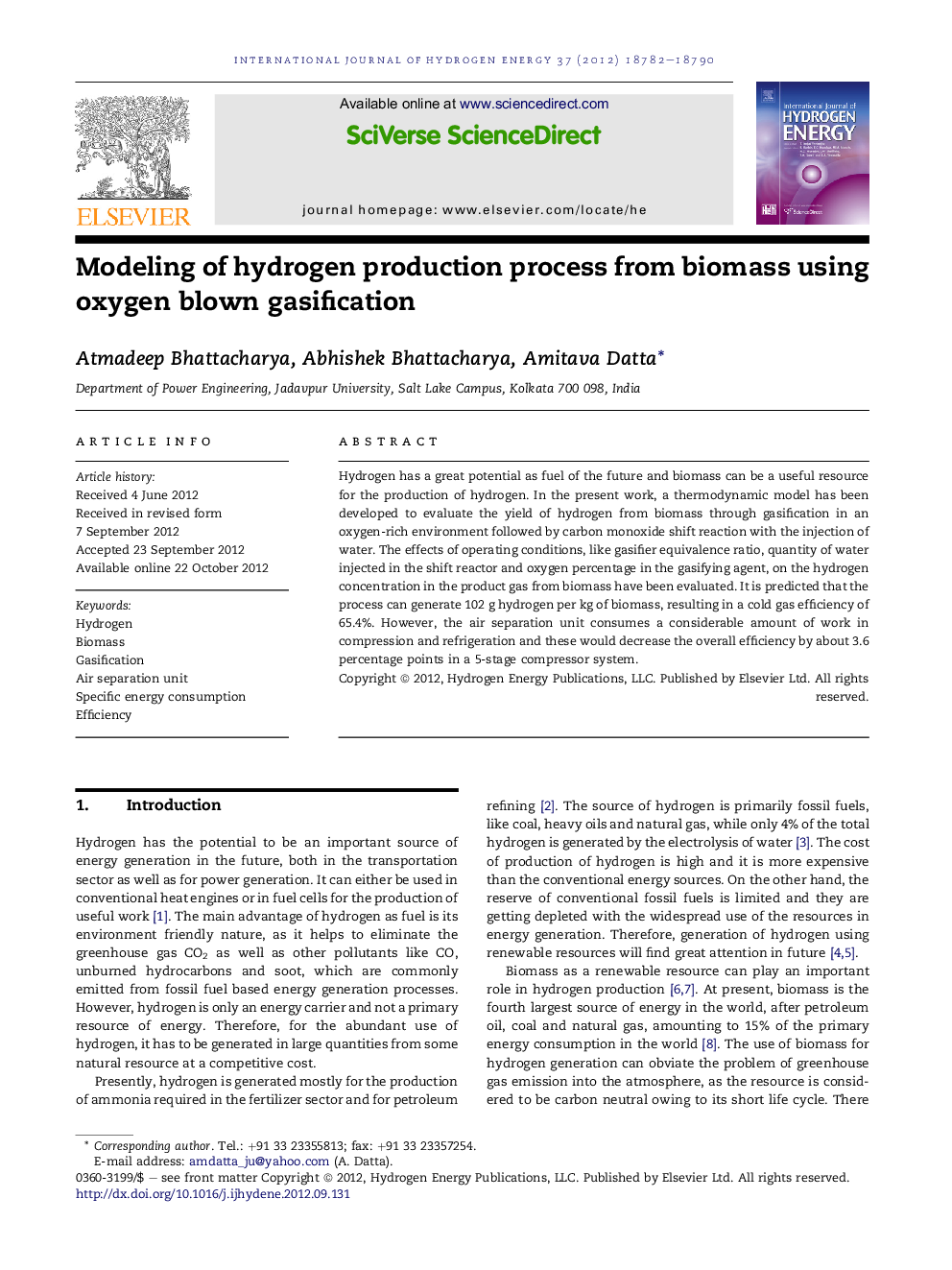| Article ID | Journal | Published Year | Pages | File Type |
|---|---|---|---|---|
| 1276083 | International Journal of Hydrogen Energy | 2012 | 9 Pages |
Hydrogen has a great potential as fuel of the future and biomass can be a useful resource for the production of hydrogen. In the present work, a thermodynamic model has been developed to evaluate the yield of hydrogen from biomass through gasification in an oxygen-rich environment followed by carbon monoxide shift reaction with the injection of water. The effects of operating conditions, like gasifier equivalence ratio, quantity of water injected in the shift reactor and oxygen percentage in the gasifying agent, on the hydrogen concentration in the product gas from biomass have been evaluated. It is predicted that the process can generate 102 g hydrogen per kg of biomass, resulting in a cold gas efficiency of 65.4%. However, the air separation unit consumes a considerable amount of work in compression and refrigeration and these would decrease the overall efficiency by about 3.6 percentage points in a 5-stage compressor system.
► Hydrogen production from biomass through oxygen blown gasification and shift reaction has been modeled. ► Cryogenic air separation and chemical equilibrium of components in gasifier and shift reactor. ► Effects of process operating parameters on hydrogen yield has been studied. ► Specific energy consumption in the air separation unit has been studied for different compressor stages.
